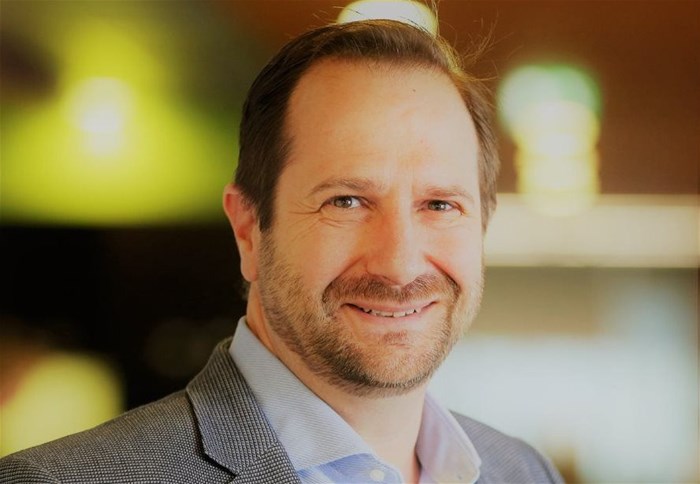The Covid-19 pandemic has forced companies to temporarily go virtual and employees to work remotely. However, tech companies such Salesforce, Amazon, Twitter and Spotify have announced permanent remote work options for all their employees.

Robin Fisher
Salesforce, the American cloud-based software company, has revised its work strategy, announcing that there would be three categories of workers - flex, fully remote and in-office. While the company is working on reopening its offices it has extended the ‘work from anywhere’ until 31 December, making any return to the office optional until then.
We caught up with Robin Fisher, senior vice-president for the Mediterranean, Middle East and Africa region at Salesforce, to learn more about the company’s ‘success from anywhere’ work strategy.
Salesforce, along with global companies such as Amazon, Capital One and Twitter, have announced plans to switch to remote working permanently. Why did you decide to do this and how are you going to implement this in the region, particularly in South Africa?
Fisher: Through ongoing employee feedback and observations, we focus on creating the workplace of the future.
Our decision to implement a ‘success from anywhere’ model was prompted by employee feedback gathered through a series of well-being surveys. Last year, our surveys showed that only 32% of employees wanted to return to the office. We then declared the end of the 9-to-5 workday by introducing three new work models: flex, fully remote and office-based.
Today, we’ve reached a critical milestone in our ‘success from anywhere’ journey, as we begin to reopen offices in the US and around the world with a three-staged approach. Additionally, we have extended the option for all of our employees to work remotely until at least 31 December 2021, regardless of whether a local office has opened or not.
While our offices will remain an important part of our strategy as we reopen, the office is no longer at the center of our work day. Just as we flexed when we moved our offices to our homes, we are encouraging all employees to flex forward to a new, better way of working.
At present, Salesforce does not have a local team on the ground so we have not, as yet, had to implement ‘success from anywhere’ in South Africa.
How are you going to ensure that your employees adapt to the work from home model?
Fisher: When we started transitioning to a new way of work, we understood that this would take some adjustments on the part of our employees and that there are costs involved when setting up a home office.
With this in mind, we provided a budget to all of our employees to help with costs of tools and equipment. In addition, to show our support for our working parents, we also extended our family care leave so that parents are now eligible for six weeks of paid leave.
In order for remote working to be successful, the most critical factor is to establish trust between employer and employee. Training, onboarding and culture are all important.
Africa's growth in internet access has been on the rise over the last decade, however, many people in the continent still do not have access to high-speed, stable internet connection. How are you going to overcome this challenge?
Fisher: We do not have an office, as yet, on the ground in South Africa. There are, however, many businesses in South Africa that have already adapted to a hybrid or flexi model with great success.
Whilst Salesforce’s tools allow users to run their businesses from a phone - if needed - for those businesses which are planning to move into a permanent hybrid or flex model, there are factors to consider. As mentioned, access to high-speed internet is a problem. Businesses should account for these potential hurdles and address them in their business continuity plans, for example, assisting employees with remote set-up costs.
What other challenges did the Salesforce team face while implementing the work from home model and how did you overcome them?
Fisher: Our management team, who are located across the globe in Ireland, the UK and France, had to get used to not having monthly on-site or face-to-face meetings. Although they had to adjust to our new evolving world and manage these meetings remotely, we did notice that the time saved due to no travel time, and improved efficiency were both positive outcomes.
What can you say are some of the advantages of remote working?
Fisher: A ‘success from anywhere’ model allows for a greater balance between home and work, resulting in a more productive employee with better outcomes. It also creates new opportunities for growth - businesses can expand into new markets and employees have better access to new opportunities. The possibilities, without the constraints of travel (and borders), are limitless.
Why should more companies switch to remote working on a permanent basis?
Fisher: ‘Success from anywhere’ is all about succeeding together in a human-centered, digital-first environment. Everyone can finally work where, when, and how they’ll make the most impact. This does not mean that we need to be fully remote, as the office still has its place, but the traditional sense in how we view the workday is what has changed.
The world is changing, and so should our perception of office life. What works is dependent on each company - whether a hybrid model, a flexi model, or a fully-remote model is chosen. Businesses should recognise that productivity is not a result of a 9-to-5 office life, but rather of the tools we provide our employees and the trust we place in them.
Businesses should look ahead and consider how they can create workplaces that are future-ready. At Salesforce, we focus on creating workplaces that enable us to be more connected to one another, maintain a healthy work-life balance, and advance equality, all of which result in improved innovation and business outcomes.
According to you, how will workplaces look in the future? And, what is the future of remote working?
Fisher: The way we live and work has changed dramatically. We are now delivering customer success, operating our business, delivering employee success and working more sustainably, all from anywhere. And we're not going back to the way it was.
The traditional workplace as we know it is gone. We’ll see a ‘work anywhere’ environment that is digital and that will continue to evolve with emerging technologies that challenge the traditional business models.















































